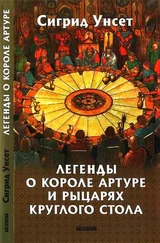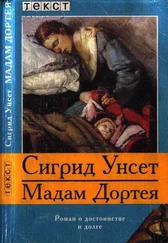THERE IS NO SUCH THING AS AN ORPHAN, says Pastor Wyatt. Everyone has a father in God. But Cole knows it’s because he’s an orphan that everyone is so nice to him. His whole life, people have never been so nice to him as they are in Salvation City. There are other children here who’ve lost parents. There is a girl named Michaela, who, like Cole, lost both. But unlike Cole, Michaela has family who survived the flu: a sister and a brother. Michaela’s case is unique, though, because she never knew her birth parents. A janitor found her in a high school gym locker when she was just a day old. So in a way Michaela has been orphaned twice.
Cole has heard it said that Michaela might be a rapture child. He has heard Tracy say it to PW. “Sometimes I think I can see her aura.”
The first time Cole ever heard of rapture children was at the orphanage, where there were three: a boy and two girls. Rapture children had been around before, but since the pandemic there were lots more of them. Rapture children were children who’d been sent by God to be lights in the coming dark. They would be among the first of the living to be caught up to Jesus’ side (right after the holy dead). God had endowed them with special spiritual powers so they could lead others in the countdown to the final battle. Though PW says there is nothing in the Bible to justify this, Tracy is among those who believe it.
Tracy has a niece named Starlyn who is a rapture child.
The rapture children at Here Be Hope got so much attention, naturally everyone wanted to be one. Some kids declared themselves raptures and would do almost anything—including lie through their teeth—to prove it. But only grown-ups could say who was or was not a rapture child.
Cole has heard about rapture children performing heroic deeds and even miracles—the boy at the orphanage was said to have run into a burning house to rescue a baby when he was hardly more than a baby himself—but Cole has never seen anything like that. The older of the two girls said that every night when she knelt to pray, Jesus came and stroked her hair. But Cole has learned that seeing Jesus, or at least conversing with him, is not such a rare event.
Some rapture children are unusually gifted. Michaela plays music without having been taught and sings like an angel (there are those who insist rapture children are angels). But though everyone says Cole is gifted, too, no one has ever said he might be a rapture child.
One thing all the rapture children Cole has met have in common is that they are good-looking. Almost every one of them is blond. (Michaela’s hair is so pale it’s more white than yellow; from the back you might even mistake her for an old woman.)
The biggest difference Cole can tell between rapture children and other children is that raptures have a way of making adults happy without even trying. He has seen Starlyn walk into a room and people light up as they do when dessert is set in front of them. He has heard grown men and women pour out their hearts to twelve-year-old Michaela, asking for her advice about grown-up things—should they take this new job, should they have another baby—or for her blessing. The same kind of thing that had happened in the orphanage. Some of the other orphans were a little afraid of the rapture children because of this power they had with the adults. And Cole is a little afraid of Michaela. The way she always seems to be either laughing or crying. The way, in church, she is able to keep singing out strong even with tears streaming down her face. A girl with almost no meat on her bones and enormous hungry-looking eyes. There would not be enough hours in the day for her to fill all the requests she got from people to pray for them.
Cole is afraid of Starlyn, too. But that is love (and a secret).
Though there is no Bible story about them, Cole would like to do a comic book about rapture children.
“Did you used to be one?” Even before he asks PW this, Cole knows the answer is yes. But PW gives a loud whoop as if Cole had said something crazy.
“Me? Oh my, no, no, no. I was—my mama would tell you—I was more of a—of a reptile child.” And when Cole looks confused, PW stops laughing and says, “It don’t matter, Cole. It don’t matter what kind of child a person is. Like the song goes, Jesus loves all the little children.” And he opens the Bible to Mark 10:13, to show Cole where it is written.
“CHILDREN TELL TALE OF REAL-LIFE ‘LORD OF THE FLIES.’”
Pastor Wyatt had saved a copy of the article that had set him on the path leading to Cole. But long before that story appeared, he’d been preaching against the new orphanages.
“First we had all these horror stories about our inefficient and overburdened foster-care system resulting in all these abused and neglected kids. Then we had people saying why not bring back the old institutions? Why not dump all those kids in a group home and have the government be in charge? Can’t possibly be worse than what we got now. As if the solution to ‘the system’s broken’ was ‘break it some other how.’ But Jesus tells us straight out how he felt about children: the kingdom of God is theirs. And whoever seeks to live in the kingdom must love the children as he loved them. Meaning it is our inescapable duty to find Christian families for each and every child. And if that means moving children from parts of the country where good Christian families are hard to find to parts of the country where they are the majority, then I say that’s what we should do.”
Most people avoided calling them orphanages. They called them children’s homes instead. And in the beginning, most home children weren’t orphans at all but kids who’d been taken away from their parents. And although the homes might not have been the happiest places in the world for a young child to be, at least in the beginning they were safe and clean, the children got three meals a day and decent clothes, and, like other children, they were sent to school.
Before the pandemic the homes were kept as small as possible, and there were people who were angry about the expense, who complained about their tax dollars going to buy home children things they couldn’t afford to buy their own children—though, of course, this was worse than an exaggeration.
But most people would have been too ashamed to complain. These were just kids, after all, poor and unlucky but innocent of crime, and they touched the heart in a way that people rotting in nursing homes, or in prisons (as was the sad case with many home children’s parents), never could. In fact, in the beginning Americans everywhere opened their wallets. It didn’t take long for the new orphanages to become one of the nation’s top charities. Besides money, there were donations of everything from toys and computers to musical instruments and gym equipment. (One home in New Jersey found itself blessed with a stable of retired racehorses.) It was not unusual for a home to have more volunteers than were actually needed, and celebrities of all types could always be counted on to help raise funds or pay visits, especially at holiday time.
“An unlikely success story,” reported Time magazine. “What began as a bold and risky experiment soon turned into a trend. Now people are calling it a movement. At first, many Americans were appalled at the thought of bringing back state-run shelters for parentless children. Visions of Dickensian hellholes danced in their heads. But by involving community organizations and local school boards and insisting on rigorous oversight, child welfare authorities are reinventing the orphanage into something Dickens would not recognize.”
Читать дальше














